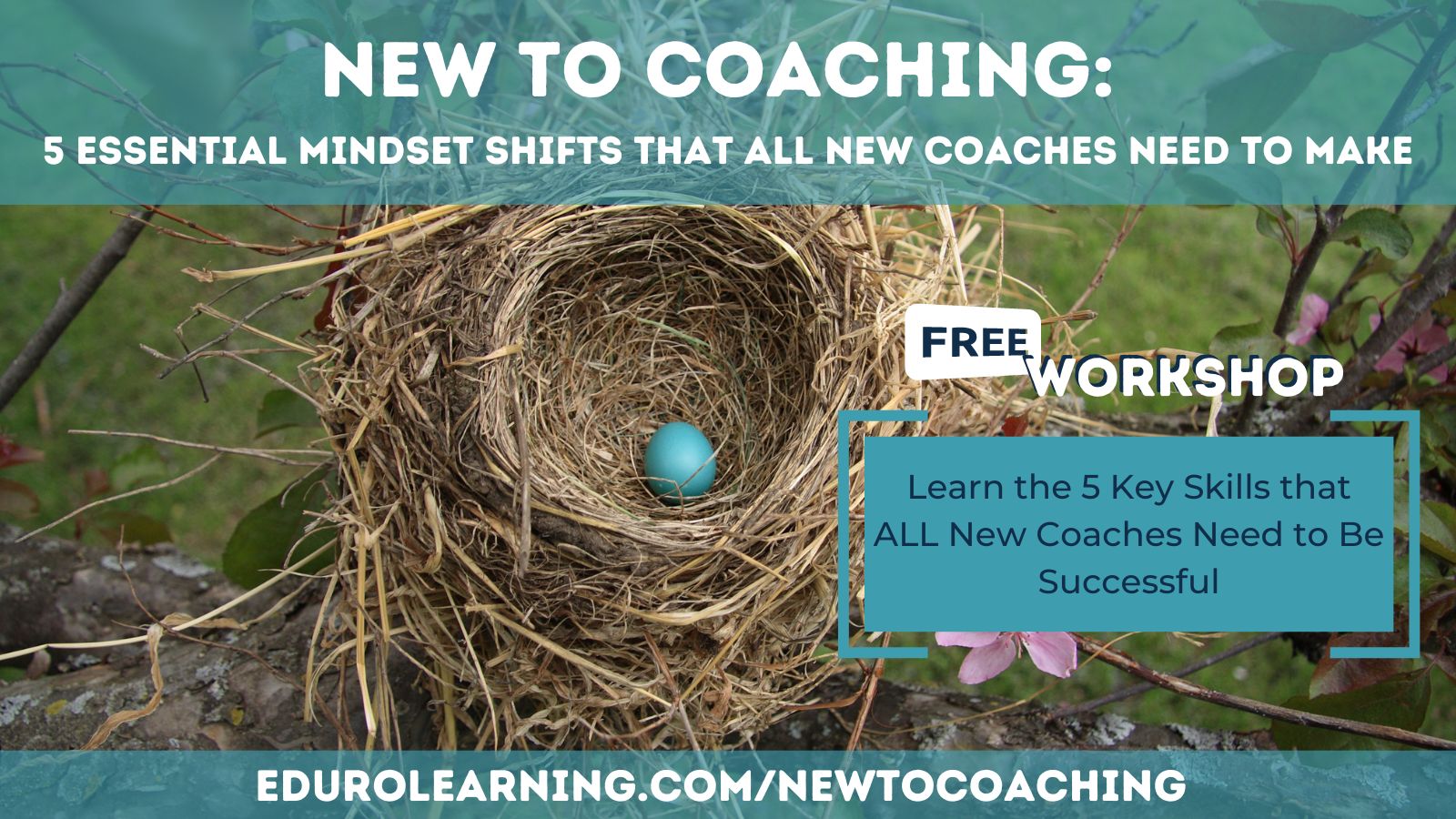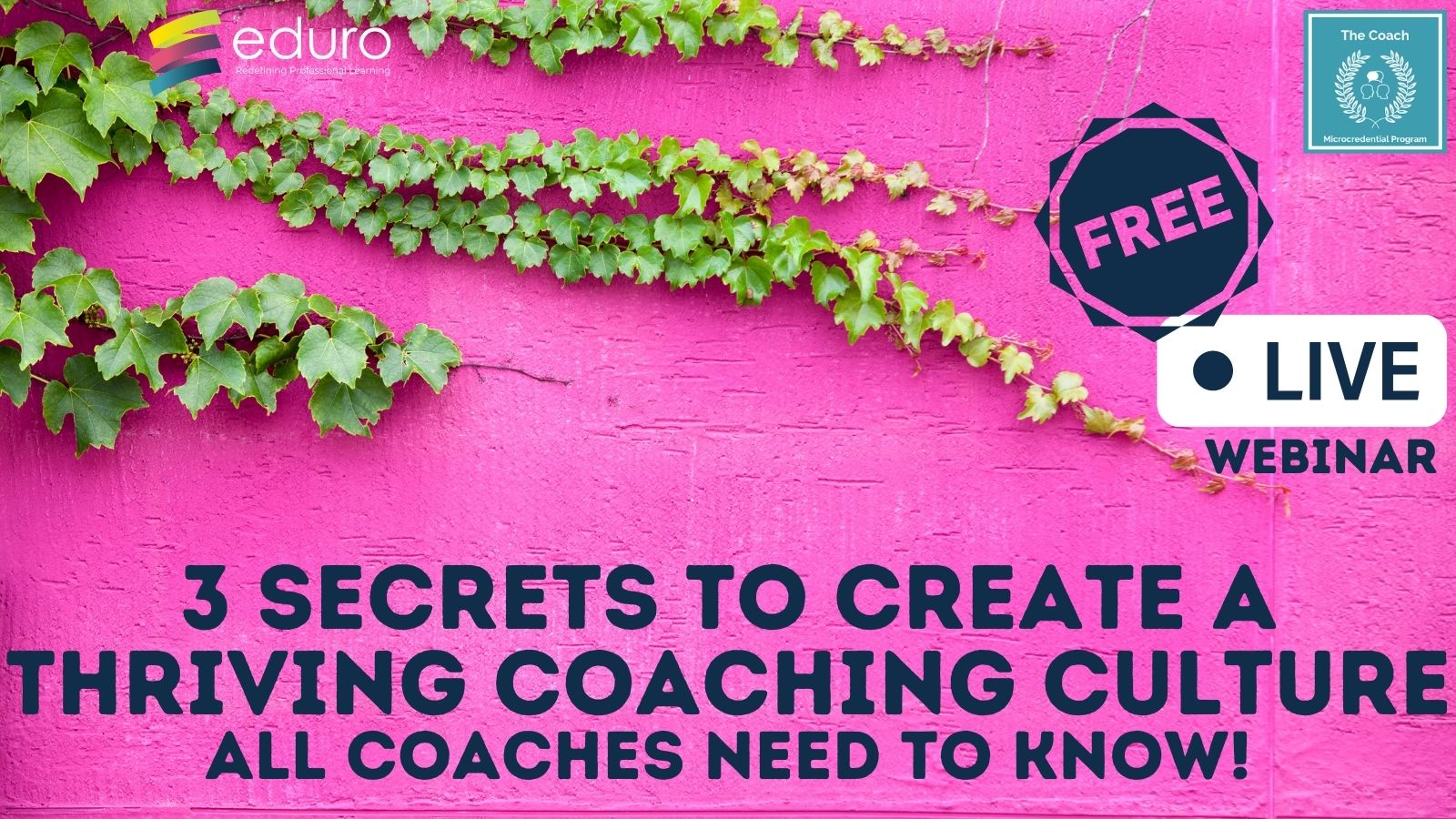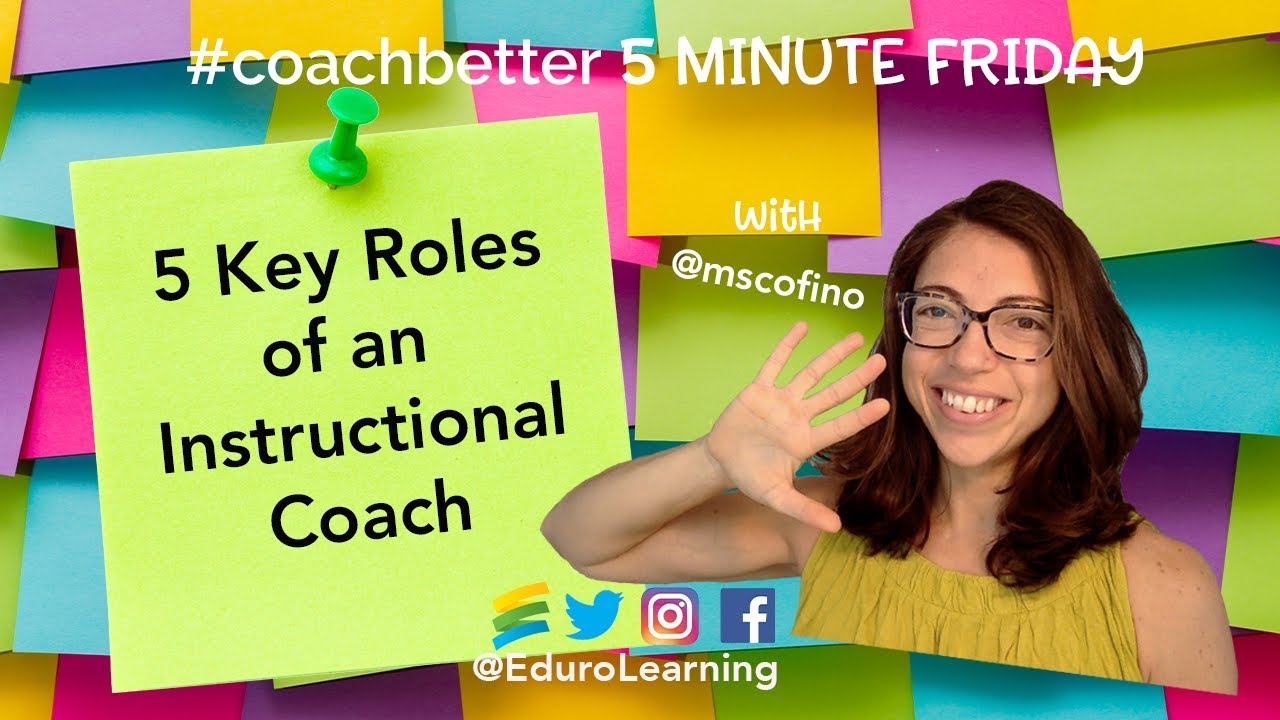As coaches in busy schools, we wear many hats, and sometimes it’s hard to know which are most important.
In our #coachbetter interviews with educators from around the world, there are five key roles that have continued to stand out time and time again, so I’m going to share them with you here!
Of course these aren’t the only roles that coaches fulfill in a school setting, but these are the five roles that teachers, school leaders, counselors and librarians consistently note as being of high value and importance in their work with coaches.
5 Key Roles of an Instructional Coach
1. Listener
It may seem like a simple task, but sometimes just being there to genuinely listen to what your colleagues are going through, the challenges or successes their having, and their goals, can be the most valuable thing you do as a coach. Listening with an open mind is the first step towards building personal relationships with your colleagues as well.
Sometimes we start by listening to personal stories, unrelated to school and professional life, and those connections help us build into a deeper professional relationship. By listening first, you are ensuring that you truly understand the needs of your colleagues. And by being a consistent listener, you are demonstrating that you value their concerns and their opinions. So, as much as we love being problem solvers, often times the best way to start is just to keep our mouths closed, and listen.
2. Advocate
As coaches, we’re passionate about our area of instructional focus, and we can spread that enthusiasm by being an advocate for others. We can
- advocate to school leadership for teacher needs by compiling data about what we hear from teachers and presenting a clear proposal to our building principals.
- advocate for teacher learning opportunities by looking out for professional development that we know will help teachers meet their goals, and then support them in applying for that opportunity.
- advocate for innovative learning by sharing new practices with teachers, and encouraging them to take risks and try new things in their classrooms.
- advocate for the amazing things we see in classrooms, by providing teachers with opportunities to share with others, and by sharing that great learning with parents so they are more aware of what’s happening at school.
In general, we can be a cheerleader for our area of instructional focus by advocating for teacher, student and instructional needs in all areas of the school community.
What’s YOUR level of coaching mastery?
All coaches go through various stages of coaching mastery. Once you identify where you’re at, you can begin to build the skills needed to move to the next stage.
This quiz is based on real-life case studies compiled from years of working with coaches inside The Coach Certificate & Mentorship Program!
When you receive your results, you’ll also get your matching case study from the STRIVE Case Studies to see where you fit in the stages of coaching mastery.
Ready to tackle your challenges and move on to the next level in YOUR coaching practice?

The STRIVE Model of Coaching Mastery quiz will help you identify your level of coaching mastery by matching you with case studies compiled from years of working with coaches inside The Coach Certificate & Mentorship Program so you can easily see where you fit!
When you complete the quiz, you’ll get:
- Your matching case study,
- Specific strengths & challenges aligned to your result;
- Suggested next steps for each stage;
Plus the Case Study Document includes:
- Case studies leveled by coaching mastery;
- A framework to identify essential stages of professional growth & key areas to focus on in your professional learning;
- Alignment with the THRIVE Model for a Successful Coaching Culture;
- Space for you to reflect & prioritize so you can take action immediately!
You’ll go straight to the Quiz, and get the Case Study Document via email.
3. Content area expert / connector
Although we need to be conscious of the tightrope between being a consultant vs a coach, it’s still important for coaches to be experts in their focus area. Teachers look to us to help them take that next step in their learning, and we need to be able to demonstrate that we can help them do that. Part of that responsibility is creating practical resources for teachers, curating content, and providing professional development.
At the same time, we certainly can’t know everything, so when there are challenges we can’t meet, we need to be well connected so we can either find the answer or bring the expert into the conversation. Part of being connected in also being away are new developments in our area of expertise and sharing those innovative practices back in our school communities.
Being a well-connected content expert, also makes coaches extremely valuable as committee or project leaders, and provides a great opportunity for us to play a larger role in helping the school reach its goals.
4. Partner in Learning
Although there are times when teachers simply need an answer (when they need to you to act as a consultant, rather than a coach), ultimately coaches should be seen as a partner in learning. We walk the path with our colleagues, discovering and uncovering learning opportunities as we go. We can do this by:
- Listening
- Asking the right questions
- Providing resources and prompts for conversation
- Observing (students) in classrooms (as requested by the teacher)
- Collecting data (as requested by the teacher)
- Sharing and reflecting on data with the teacher
As a partner in learning, we need to be focused on the teacher’s goals rather than where we think they should go, and in that sense put their learning first. We can also remember to put our interests or the “shiny new thing” we want to share on the back burner until the teacher is ready for that next step.
5. Data Collector
Often times both teachers and coaches have a “gut instinct” about what’s working and what’s not in the classroom, but having actual data to discuss, reflect on and inform instruction is a more concrete way to address these issues. Unfortunately, collecting that data can take lots of time in an already very busy classroom teacher’s day. So, as coaches we can:
- Create tools (like surveys or documents) to collect data
- Provide resources (like cameras or devices) to collect data
- Set up and structure data collection (actually set up the camera, or speak with students to collect data)
- Review and reflect on data collected with the teacher
- Identify areas of opportunity and appropriate actions to take with the teacher
In general, we can make it easy for teachers to analyze and reflect on the data to inform their practice. Sometimes taking the pressure of logistical tasks, and helping teachers refine their goals so that the data collected is relevant, is the most time consuming and crucial part of the process. Making this experience seamless for teachers is a great way to empower them to bring data into their teaching practice more regularly.
What’s your most important role as a coach?
When I look back over these roles, my first thought is: how do I ensure that not only am I performing all of these, but how do I get feedback on how I’m doing. Am I meeting my own expectations, and how do I know? That will be a topic for another blog post, and perhaps a #coachbetter episode too!
But, before that, I would love to hear what you think! Are these roles you see as critical to your coaching responsibilities? Are we missing other important roles? How would you rank these? How do you receive feedback on each of these aspects of your job? How do you ensure you’re doing your best in each area?
The five key roles critical to instructional coaching success in schools are listener, advocate, content area expert / connector, partner in learning, data collector.
Bonus: Watch the Video
Ready to #coachbetter?
If you’re ready to dig deeper into being more intentional in your coaching practice – or if you’re new to instructional coaching and you’re curious about getting started, join us for one of our courses for coaches!
To learn more about these options, I have two FREE workshops to share with you today.
New Coaches:
If you’re just getting started as a coach, and you want to be successful in your early years, watch our New to Coaching Workshop, which highlights the key mindset and skill set shifts you’ll need when moving from the classroom to a coaching role. The workshop will also tell you all about our course for new coaches, Getting Started as a Coach.
This short course is specifically designed for classroom teachers that are moving into a coaching role so you’re prepared for the transition. It’s focused on exactly the skillset & mindset shifts you need to so you can be successful in your first years as an instructional coach.

Experienced Coaches:
If you’re already a coach & you want to think about being more intentional & strategic in your practice, watch our workshop on the Thrive Model for Coaching Success which will help you evaluate your program and your practice to see where you may have room to grow. You’ll walk away with a clear picture of exactly what you need to focus on to build a thriving coaching culture – and help you decide if our year-long mentorship and certification program, The Coach, is right for you, right now. This program is designed for current coaches who are focused on building a coaching culture through intentional and strategic coaching work at all levels – with teachers and school leaders.

Wherever you are in your coaching journey, we can support you!
For All Coaches
Connect with us!
- Subscribe to the podcast iTunes | Spotify | Stitcher
- Follow us on social media: Twitter | Instagram | LinkedIn
- Join our #coachbetter Facebook group
- Explore our courses for coaches

Recent Comments